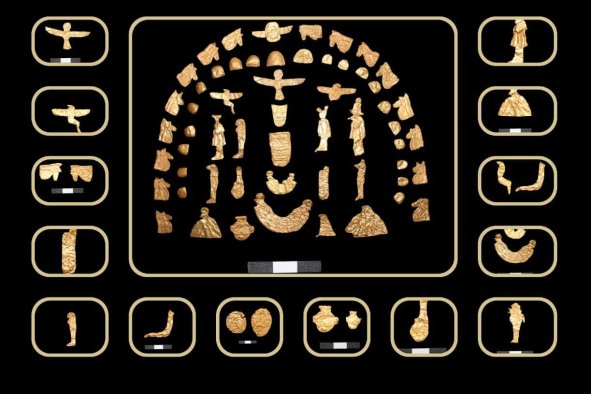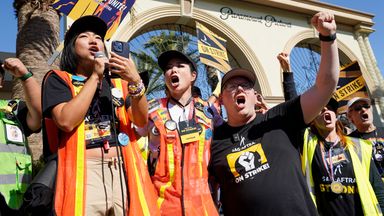Archaeologists have unearthed a "princely" tomb featuring a chariot among more than 150 "exquisite and precious" artifacts in Italy.
The tomb was found in the Corinaldo Necropolis in the Ancona province, located in the central Italian Marche region.
This burial ground dates back to the 7th century B.C. and is associated with the Piceni—an ancient Italic people who lived across what is now Marche and parts of the Abruzzo region, just to the south, between the 9th and 3rd centuries B.C.
The Romans referred to the territory of these people as Picenum. This ancient region was eventually incorporated into the Roman Republic.
The Corinaldo Necropolis has already yielded an exceptional find: what researchers dubbed the Tomb of the Prince of Corinaldo, uncovered in 2018.
Archaeologists have now discovered another princely tomb from the 7th century B.C. at the site, the local municipality of Corinaldo announced in a statement.
The research was undertaken as part of the ArcheoNevola Project, directed by the Department of History Cultures Civilization at the University of Bologna (UB).
This project has been active since 2018, in collaboration with the Municipality of Corinaldo and the Superintendency of Archaeology, Fine Arts and Landscape (SABAP) for the provinces of Ancona and Pesaro Urbino.
Federica Boschi of UB and Cecilia Carlorosi and Ilaria Venanzoni of SABAP are leading the work at the site.
Recent investigations led to the discovery of a quadrangular pit of considerable size—about 12 feet by 7 feet—containing more than 150 artifacts. This pit, in turn, lies within a large, circular ditch with an original diameter of roughly 100 feet.
"Of particular note is the presence of a two-wheeled chariot and a prestigious set of bronze objects, including a helmet, a cauldron and numerous finely decorated containers," the municipality of Corinaldo said in the statement.
A number of the objects are clearly associated with banqueting, such as an iron ax for the processing of meat, as well as pottery designed to serve food and drink. Such finds paint a picture of the tomb's owner as a celebrated person "of the highest order," according to the statement.
Several of the objects appear to have come from the Etruscan world, with which the Picene aristocracy had relations and traded. The Etruscan civilization flourished in another region of central Italy between the 8th and 3rd centuries B.C.
The latest findings highlight the importance of the Corinaldo Necropolis site, particularly in reconstructing the earliest inhabitants of the territory.
"Corinaldo can boast the title of the Land of Princes," Mayor Gianni Aloisi said in a statement. "A discovery that confirms the historical and cultural value of the Nevola archaeological area that will allow us to know, and perhaps rewrite, the history of our community."
Do you have a tip on a science story that Newsweek should be covering? Do you have a question about archaeology? Let us know via science@newsweek.com.
Disclaimer: The copyright of this article belongs to the original author. Reposting this article is solely for the purpose of information dissemination and does not constitute any investment advice. If there is any infringement, please contact us immediately. We will make corrections or deletions as necessary. Thank you.



